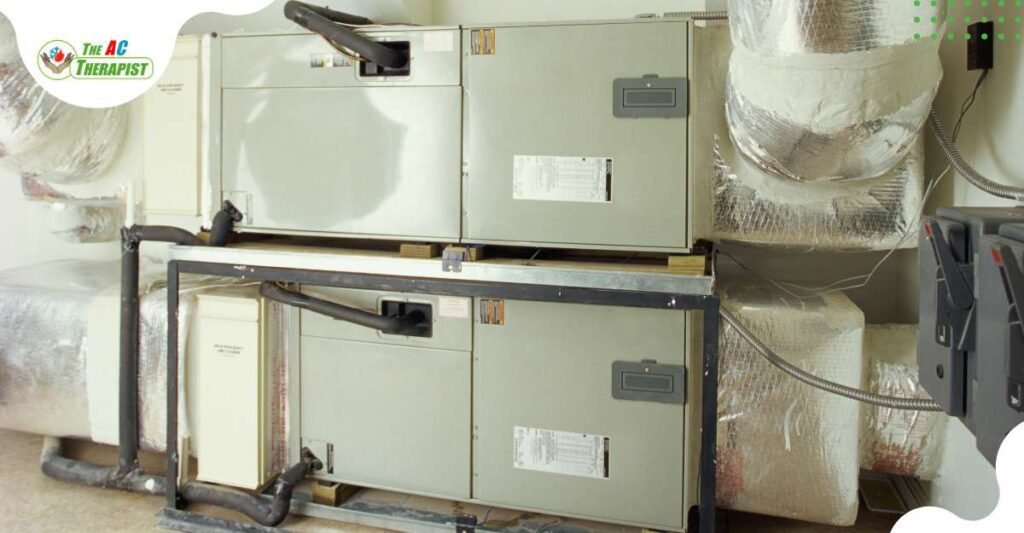Why is it important to check the furnace before winter?? 10 simple task you can try.
Nothing is more inconvenient and unfortunate than having your family’s beautiful Christmas and New Year’s vacations interrupted because your furnace has broken or stopped working. Checking your furnace before the harsh winter season arrives is crucial so you can enjoy a pleasant vacation with peace of mind.
Prevention is always better than regret, which is why preventive maintenance is always the best option for your furnace. Don’t let a sudden failure be the cause of corrective maintenance; it’s better to avoid and extend the life of your heating system before it fails.
A furnace inspection can help identify potential issues that could cause problems during the winter, such as a malfunctioning thermostat, a dirty or clogged filter, or a faulty pilot light. In addition, a furnace inspection can help improve the efficiency of your heating system, potentially saving you money on your energy bills.
The colder season is coming to warm Florida, and it’s time to be prepared, but it’s not just about the weather; there are many other benefits to your furnace maintenance and tune-ups before the furnace’s peak season.
This simple task will help protect your home from costly repairs in the long run — plus, it only takes about 30 minutes of your time (and can often be done on the weekend).

A regularly checked and maintained furnace will save you on energy costs and keep your home cozy during the cold months.
Regularly checking and maintaining your furnace is important for a variety of reasons. For one thing, it will save you money in the long run. When your furnace is maintained regularly, it will be less likely to break down during the winter months when temperatures drop to freezing or below. If this happens at night when no one can fix it right away (like on Christmas Eve), you could lose heat until the morning—or worse!
You also want to avoid getting into a situation where your furnace breaks down while everyone else’s is working perfectly fine. This would mean that you are cold, but your neighbors have their furnaces running just fine!
You can also check: Is your furnace not blowing hot air?
Furnace filter replacement is the easiest, most inexpensive way to improve indoor air quality — the filter tends to get dirty in a month or less.
Replacing your furnace filter is one of the easiest and most inexpensive ways to improve indoor air quality. The filter tends to get dirty in a month or less, so it’s important to check it regularly. You can find filters in many different sizes, so ensure you get the right one for your unit. Remember to clean out the filter compartment after changing the filter; this prevents trapped dust from recirculating into your home.
A clean filter keeps chemical pollutants from recirculating through your home.
If you have a gas furnace, you may wonder how often you should change or clean the filter(s). Changing your filters is important because they keep dust and other pollutants from recirculating through your home. It’s also important to clean them regularly, as these particles can build up and clog the system that circulates warm air throughout your house during winter.
A dirty filter will cause higher energy costs and wear on equipment and decrease lifespan. To maintain efficiency in your HVAC system all year long, we recommend changing filters once a month or as needed and cleaning them regularly—at least every three months for standard units (more often if you have pets or smokers in your home).
Filters allow heat to flow freely in and out of your furnace, making it run more efficiently.
One of the most important reasons to regularly check your filters is that they keep dust and debris from entering the furnace. Dust can build up on the blower wheel and interfere with its operation, causing it to wear out faster. When this happens, you’ll need to replace your filter more often or take longer between filter changes. This can lead to higher energy bills and increased overall maintenance costs for your HVAC system.
An efficient HVAC system is essential for keeping your home comfortable throughout winter—and it helps protect you from harmful airborne pollutants! Filters prevent these particles from getting into your home by trapping them before they enter through vents or ducts. The result? Cleaner air inside means healthier living conditions for everyone who lives in the house!
Most filters come in a variety of sizes; make sure to measure what you need to replace.
Most filters come in various sizes; measure what you need to replace. If you don’t have a measuring tape or ruler, use a piece of paper or cardboard to measure the filter.
Also, check the packaging for instructions on determining your filter size. Make sure that the replacement is compatible with your furnace model and that it fits snugly into place.
Once the filter is out, inspect the ducts to check for buildup or mold growth.
Once the filter is out, inspect the ducts to check for buildup or mold growth. Look for dust, dirt, and grime. If you see any signs of mold or mildew growth, clean it with an all-purpose cleaner and wear a mask (or take other protective measures).
If you can see any dust buildup, vacuum it with a brush attachment, dampen the area with an all-purpose cleaner, and wear a mask.
- Vacuum the filter with a brush attachment, dampen it with an all-purpose cleaner, and wipe it off.
- Clean the ducts every year as well.
Change the settings on your thermostat before winter arrives, and consider installing a programmable model for optimal efficiency.
Before you leave for summer, you should ensure that your HVAC systems are in tip-top shape. This includes your furnace and air conditioner. If you want to save money on heating costs this winter, it’s important to ensure your furnace is in good working order. Plus, this will help prevent fires and other disasters during the colder months and reduce energy use by up to 30%. Here are some tips for inspecting your furnace before the first frost hits:
- Change the settings on your thermostat before winter arrives, and consider installing a programmable model for optimal efficiency.
- Ensure all hoses are securely connected, and filters aren’t clogged (you may need to replace them).
- Clean out any debris around vents or grilles (such as leaves).
You may want to read: How often should home HVAC be serviced?
Any time there’s moisture and dust inside an HVAC system, it can create the perfect environment for mold.
Mold can affect your health, home, and HVAC system’s efficiency.
Mold grows in moist environments, such as those created by humidifiers or air conditioners. You may only notice it after significant damage has been done. If there’s moisture and dust inside an HVAC system, it can create the perfect environment for mold to grow. Spores will spread to other parts of the house when this happens through air ducts and vents. In addition to being unattractive and smelling bad, mold can cause health problems for people with allergies or asthma by releasing allergens into the air at high levels when exposed to large amounts of spores in a confined space like an attic or crawlspace where these contaminants have been growing unchecked without proper inspection from professionals.
Get rid of leaves around your unit before turning on the furnace for the first time when fall comes around. Otherwise, debris could get sucked into vents, forcing Blower motors to work overtime and potentially cause damage.
One of the most common causes of furnace damage is leaves around the unit. In fall, homeowners often begin using their furnaces for the first time in months when the weather starts to cool down. Suppose you have yet to remove all the leaves around your furnace before turning it on. In that case, they can get sucked into vents and cause damage to Blower motors that work overtime to keep heating systems running smoothly.
To prevent this scenario from happening:
- Clean up any leaves near where you plan to use your furnace during colder months — especially if they’re near an air vent or other opening on your HVAC system’s exterior
- Make sure there aren’t any large piles of wet grass clippings nearby (or anywhere else that might collect debris)
10. Another potential fix is to install an automatic humidifier, which helps keep moisture levels up in your home while simultaneously avoiding mold growth.
Another potential fix is to install an automatic humidifier, which helps keep moisture levels up in your home while simultaneously avoiding mold growth. This can be especially helpful if you suffer from asthma or allergies, as dry air can exacerbate these conditions. And if you’re worried about the upkeep of a humidifier (and who isn’t?), don’t be—the pros at [company name] go into detail about how it’s done:
- “For best results, we recommend that you clean or change out the filter every two weeks.”
- “Make sure your water source is not frozen before starting.”

Conclusion
It is important to inspect your furnace before winter to ensure that it is in good working order and can safely provide heat to your home during the colder months.
The bottom line is that a clean, well-maintained furnace means a more efficient heating system, which saves you money on your utility bill and keeps your home warm. Now you know why to inspect furnace before winter it’s very important to avoid any problem during winter.
Read more If your furnace is not blowing hot air.

Schedule your furnace tune-up now!
Living in a warm climate like Florida has its advantages, especially in the winter. However, to ensure long-term reliability and peak performance, your HVAC heating system needs regular maintenance, even if you reside in a warm area. And, if you are searching for “furnace replacement near me”, check our heating services.
Ready to schedule your furnace maintenance with a reliable HVAC contractor? Look no further than The AC Therapist, we offer unparalleled customer service and high-quality HVAC maintenance, repairs, and installation. Making furnace maintenance an annual priority can help you save money in numerous ways.
And remember, if you need a plumbing contractor, reach out to Plumbing Therapist.









